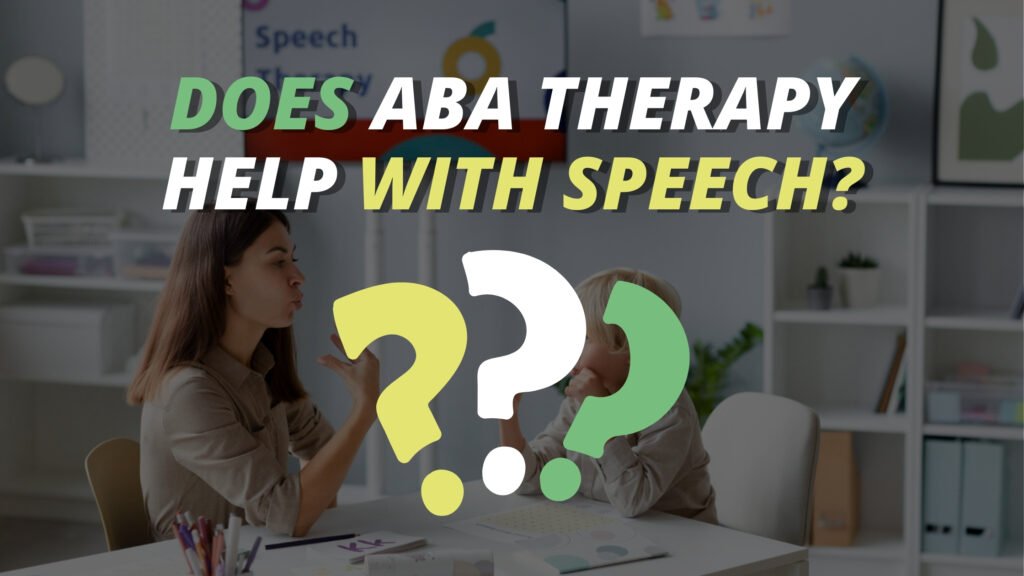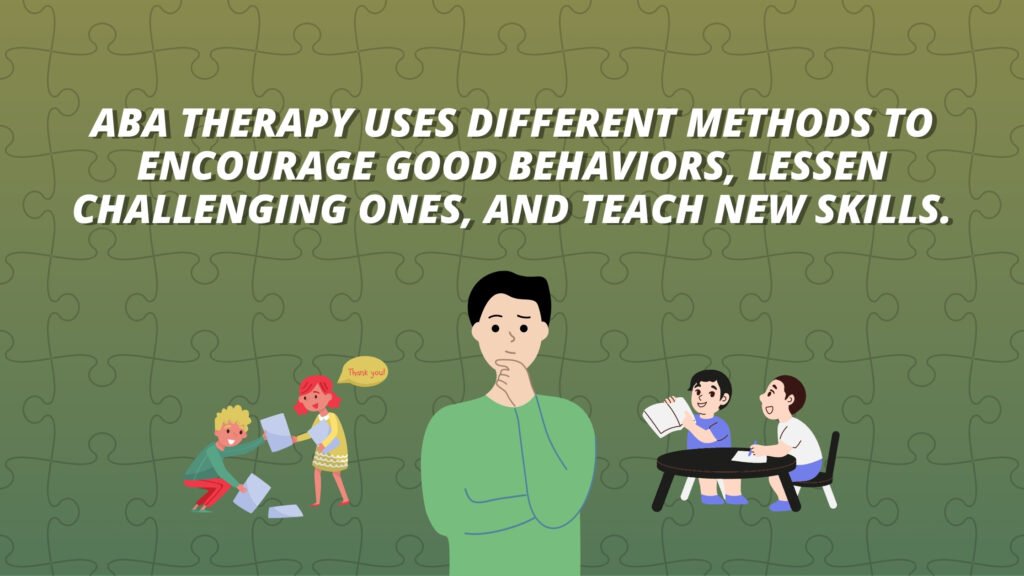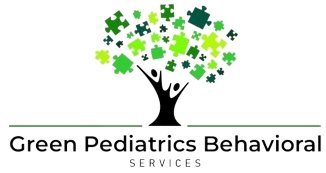Speech development is a significant milestone in a child’s life, and for those with autism spectrum disorder (ASD), achieving effective communication can be a unique journey. A kind of therapy called Applied Behavior Analysis (ABA) has become important to help people with autism. This therapy tackles many challenges they face, and one important part of it is how it helps with talking.
In this blog, we’ll look at how ABA therapy supports talking and understanding in people with autism, explaining how it works.
Understanding ABA Therapy:
ABA therapy is a way to understand and change behavior by looking at how a person and their surroundings are connected.

Even though it does many things, ABA therapy really focuses on improving communication skills, especially talking, for people with autism.
Basic principle:
- Functional Communication Training (FCT): ABA therapy often uses something called functional communication training. This means teaching different ways to communicate, like using signs, gestures, or special devices. This helps people express what they need, making communication easier and reducing frustration.
- Verbal Behavior Analysis (VBA): Another part of ABA is Verbal Behavior Analysis. This part concentrates on language and talking skills. It breaks language into different parts like asking for things, being polite, and having conversations. By teaching these parts step by step, ABA therapists aim to make communication skills better overall.
- Cueing and Shaping: ABA therapy uses cues and shaping to help people learn how to talk. Cues are hints or help to get the right response, and shaping means rewarding steps toward the right behavior. These techniques are adjusted based on what each person can do, encouraging progress in talking.
- Positive Reinforcement: A key part of ABA therapy is positive reinforcement, which means encouraging good behavior. When people try to communicate, using their voice, words, or gestures, positive reinforcement like praise, rewards, or getting to do something fun helps them do it more.
How ABA Therapy Supports Speech Development:

- Starting Early and Learning New Words: ABA therapy is like a helpful guide that starts early to teach kids how to talk better. It begins with simple words and helps kids learn more words as they grow.
- Plans Made Just for You: ABA knows everyone is different. It makes special plans for each person based on what they can do and what they need help with. This way, it helps with talking in a way that’s just right for each person.
- Breaking down Communication Barriers: ABA therapists work closely with kids to find and fix things that make talking hard. This can be problems like not knowing many words, finding it tricky to start a chat, or not understanding signs from others.
- Using Talking Skills Everywhere: ABA therapy doesn’t just teach talking in one place. It helps kids use their talking skills everywhere, like at home or school. This makes talking useful in real-life situations.
- Parents Helping Out: ABA knows that parents are important in helping kids talk better. Therapists work with parents, sharing tricks to help kids talk at home. This teamwork makes talking skills get better faster.
- Making Friends and Talking Nicely: ABA therapy also helps with making friends and talking nicely. It teaches kids how to start conversations, share thoughts, and understand what others say. This makes talking fun and helps kids connect with others.
- Learning New Words and Sentences: ABA therapists help kids learn new words and put them into sentences. This makes talking interesting, and kids can say what they want more clearly.
- Stopping Repeating Words: Sometimes, kids with ABA therapy might say the same words over and over without understanding. ABA helps them use words with meaning and not just repeat the same things.
- Dealing with Tough Times: ABA therapy teaches ways to talk when things get tough. This can help kids say what they need even when it’s not easy, reducing stress and frustration.
- Using Tools to Talk: ABA therapy might use tools like pictures or special devices to help with talking. These tools make it easier for kids to say what they want.
Research and Case Studies:
There are many stories and studies about how ABA therapy helps kids with ASD talk better. These stories often tell us that ABA therapy makes kids talk more clearly, be better at talking with others, and have an easier time expressing themselves. This happens when kids get regular and personalized ABA therapy.
Challenges and Considerations:
Even though ABA therapy helps talk, it’s important to know that not everyone progresses in the same way. Things like how severe autism is, other conditions a person might have, and how well someone responds to therapy can all affect how well it works. Also, having family and others who care and support is really important for making talking better and keeping it that way.
Conclusion:
In conclusion, ABA therapy is a helpful tool to make talking better for people with autism. ABA therapists use important ideas like teaching different ways to talk, understanding how language works, and saying positive things to encourage talking. Starting early, making special plans, and working with parents all help ABA therapy be successful in making talking easier for each person. ABA is always learning more to help people with autism talk even better. By understanding that everyone is different, ABA therapy keeps improving. This gives hope and chances for people with autism to get better at talking and connecting with others. ABA therapy is like a key that helps people with autism express themselves and especially be part of the world.
